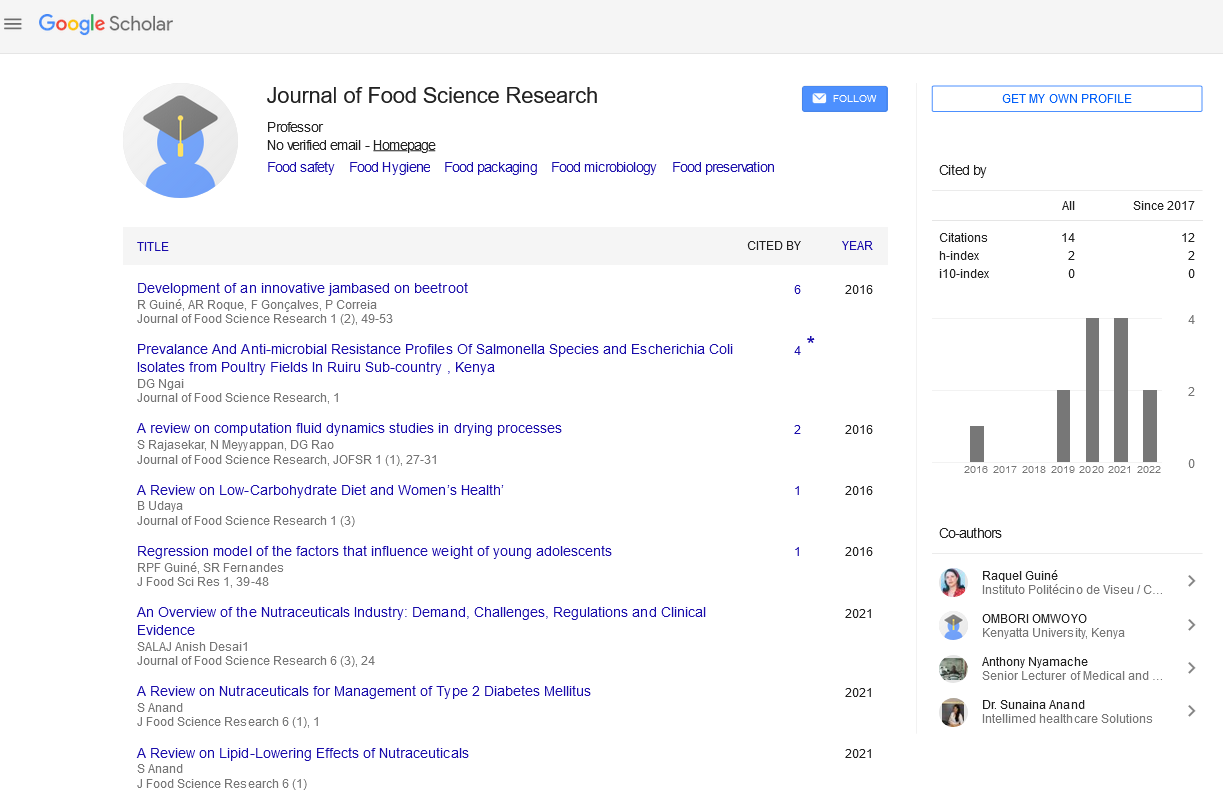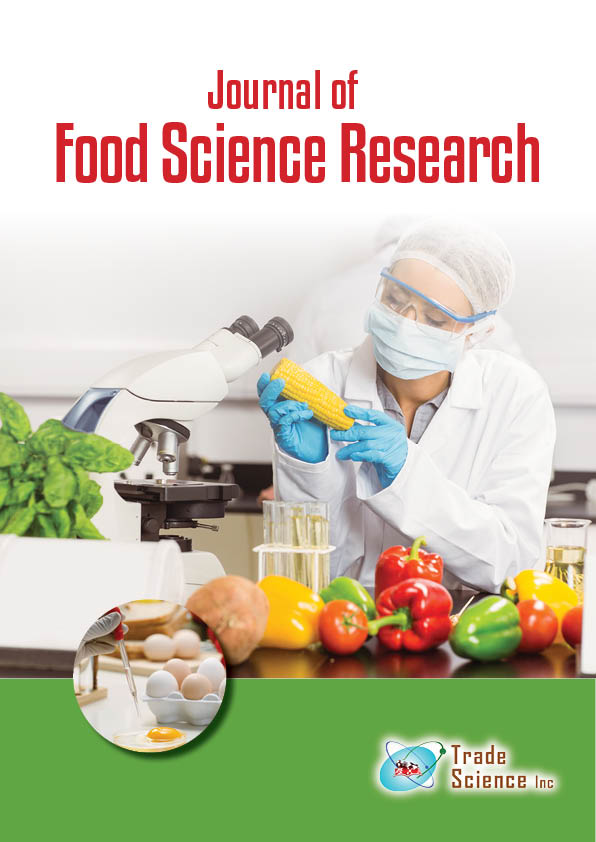Abstract
Potential control of Salmonella enterica serovar typhimurium in shell eggs using sous vide pasteurization
Author(s): Thilini KeerthirathneSalmonellosis is a foodborne illness of public health significance. In Australia the incidence of salmonellosis has been significantly increasing over the last decade with eggs and raw egg products identified as the main source of outbreaks. The primary cause of salmonellosis in Australia is S. typhimurium. This study investigated the effectiveness of sous vide pasteurization to provide whole intact table eggs free from Salmonella contamination. During this study the optimum conditions for the control of S. typhimurium and the influence on the eggs properties was explored. Whole shell eggs were inoculated with the S. typhimurium in the concentration of 105 CFU/ml. Three eggs were tested at each time point and the experiment was repeated three times. The intact shell, internal contents and crushed shells were processed separately and the remaining viable Salmonella were enumerated via culture on XLD agar. Egg Albumen pH, weight before and after heat treatment, thermo coagulation of proteins, Haugh unit, egg yolk index, volume of foam and volume of drainage was measured to test the egg quality following the pasteurization process. The optimum conditions for the control of S. typhimurium and the influence on the eggs properties, including viscosity, color, thermal coagulation and the egg protein quality was explored. This research demonstrates the potential for sous vide to be used as a simple method for the preparation of microbiologically safe eggs, which can be used for the production of food containing raw eggs. The widespread use of pasteurized eggs would significantly reduce the incidence of salmonellosis.

